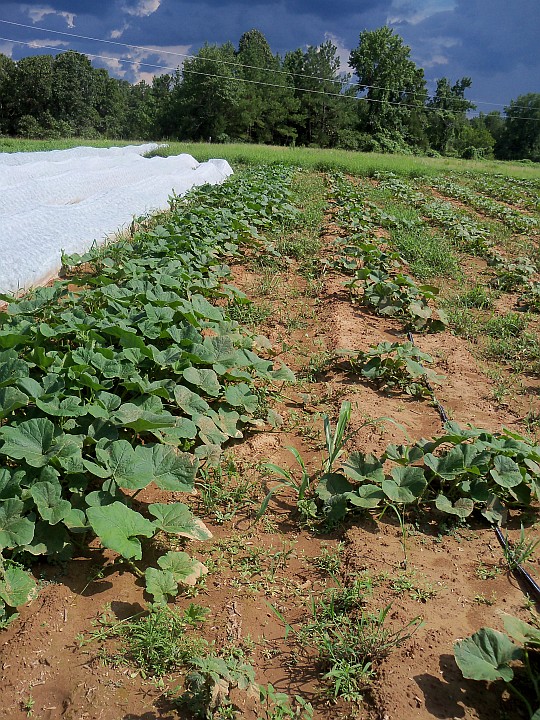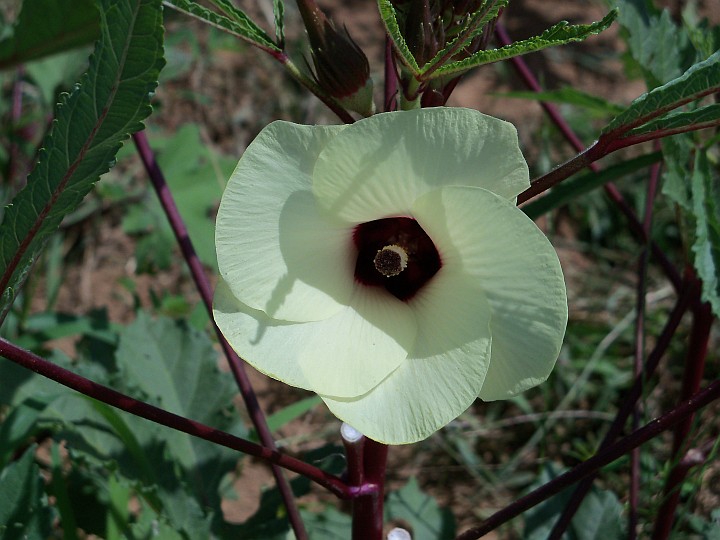I was talking with my farmer friends at Cooper-Young on Saturday and started a sentence with, “I am kind of a control freak…” and the immediate response from the peanut gallery was a sarcastic, “really?” “no, you?”. In fact (as you and everyone else probably already know), I am very Type A. You know, high-achieving, work-a-holic, impatient, takes on more than they can handle, to the point, always wants to help others, obsessed with time management, rigidly organized…that describes me all the way up to “rigidly organized”. Somehow I missed the boat on that one. I strive more for “fantastically disorganized”.
I could fill books with disorganized Josephine stories – like how this week I was using only one glove for the first half of the week, then simultaneously lost the one and found the other hand. I am still using only one glove, it’s just the other one. I am always losing things. Once I called Randy while he was in Washington, DC to ask if he knew where my car keys might be.
Record keeping is the type of thing that organized people are good at. Suffice it to say that record keeping is not my strong suit. We do keep a farm notebook that I am supposed to write in everyday. Usually I manage two or three entries a week. I already filled one whole notebook this year. Speaking of that notebook…it got completely saturated as a result of being left in the back of the truck in the rain. It is now dry and only partially illegible.
Last week I got a record keeping wake-up call. Six weeks ago I planted four varieties of winter squash in seven rows. I noticed the first row was exceptionally vigorous, so I checked my notes (aha!) to see what variety it was and found I had planted  butternut. The only problem is that the second row is also butternut. The plants in the first row are, no exaggeration, four times the size of those in the second row. It looks like one of those testimonial photos – a before and after for some magical age defying crème. What did I do differently? Man, I should have written that down!
butternut. The only problem is that the second row is also butternut. The plants in the first row are, no exaggeration, four times the size of those in the second row. It looks like one of those testimonial photos – a before and after for some magical age defying crème. What did I do differently? Man, I should have written that down!
I have some theories. I was using up the rest of some soil amendments – namely bone meal, lime, and Plant-Tone. I would have liked to have used all three soil amendments in every row, but we were racing the rain – which turned out to be the last rain preceding nearly a month without. The irony is that while I was planting the squash seeds and using up the rest of our soil amendments I thought “maybe I should write this down.” I had the notebook as I was recording where each variety was sown. I even had a pen. I even thought about writing it down. Honestly I didn’t think it would make a noticeable difference, so I didn’t.
I can tell you one thing – from now on, every plant on this farm is getting bone meal, lime, and Plant-Tone. And maybe I’ll do a little better with my record keeping.
The myth of the squash-cumber
Perhaps you have heard of the squash-cumber, the fruit that results from planting squash and cucumbers too close together. Perhaps you have even invoked the squash-cumber yourself when confronted with unusual or off-tasting squash in your own garden plot. I hear mention of cross-pollination yielding squash-cumbers several times every year. The problem? Squash-cumbers are 100% myth. There is no such thing.
The story goes that if you plant squash and cucumbers in proximity, bees will bring pollen from the cucumber to the squash flower and result in inedible, or at least not-so-tasty fruits. The first problem with the squash-cumber myth is that squash and cucumbers are two different species (different genera to boot) and do not cross-pollinate. A little bit of crazy stuff goes on between the four species (all the same genus) we call “squash” – but we’ll not get into that here. Cucumis savitus (cucumber) and Cucurbita pepo (summer squash) will not cross.
Even if they did cross, however, you still wouldn’t get a squash-cumber. The weird fruit would show up next year if you saved the seeds and planted them. The fruit (in this case a squash) of the plant is not offspring, the plants grown from the seeds in that fruit are the next generation offspring, and that is where the cross-pollination would show up as unusual and possible inedible fruit.
So there you have it, a persistent garden myth exposed for what it is: hogwash! If your squash are off, it could be a pest problem or a physiological problem, so start by consulting an expert. It could also be bad seed. Be sure to buy from reputable sources. There should be a phone number and lot number on the seed packet so you can call and get it all straightened out. Just don’t blame the cucumbers.



